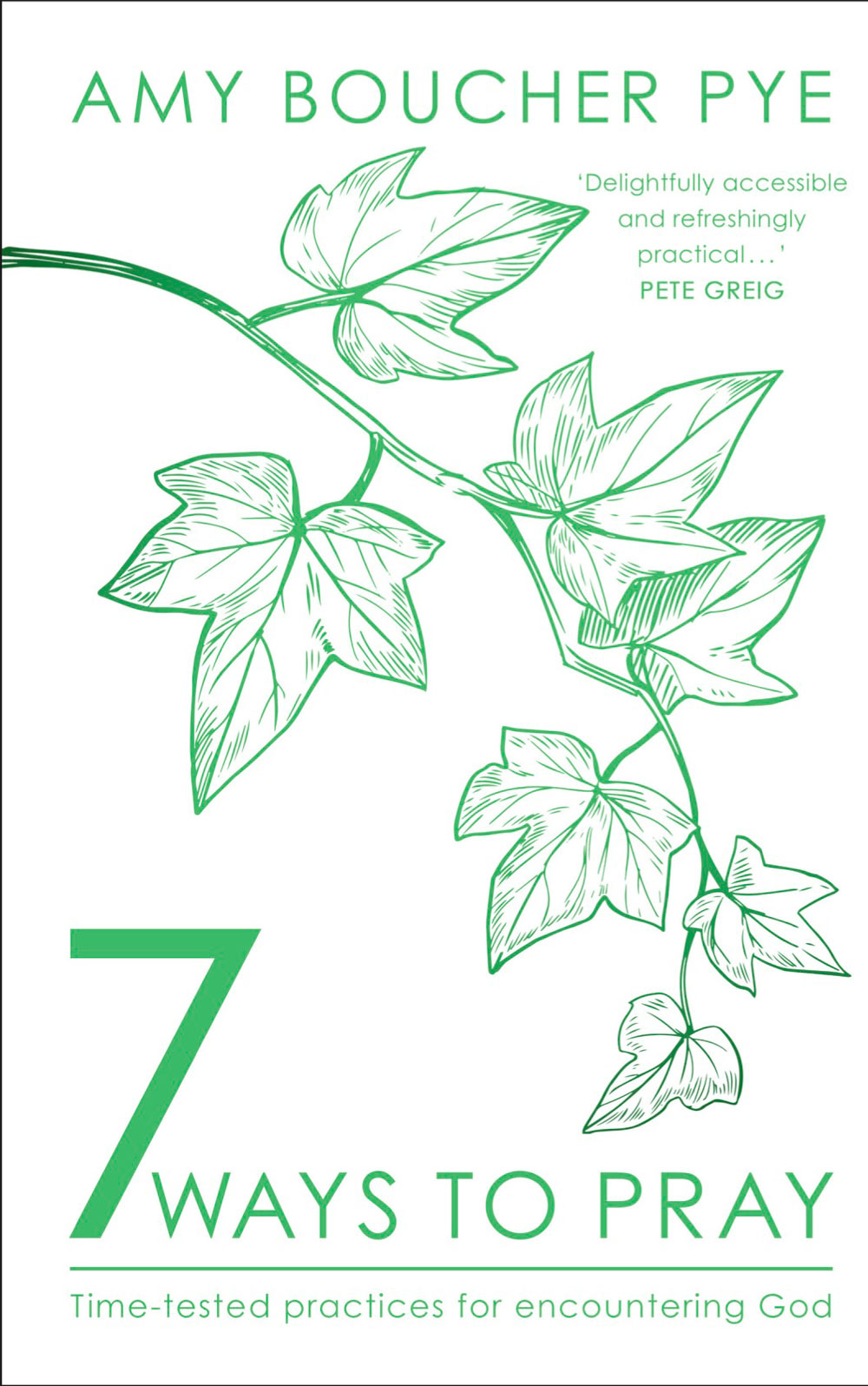
Lament
An ancient practice for our times, by Amy Boucher Pye
In some ways it feels so recent, the events of that night. Arriving home and wondering why the light was on in my room to find my mother there, her eyes red brimming with tears. “Is it Grandpa?” I asked, heart pounding. “No,” she said, choking with emotion. “It’s Sue.”
I was nineteen when my world changed irrevocably with the death of a close friend in a car accident. Six months later another friend died and seven months after that my beloved grandfather also did. With so much grief I plunged into numbness and shock, not knowing how to process it. To stave off the feelings of pain, sadness and anger I turned to activity, throwing myself into my studies and my part-time work. How I wish I’d known about the prayer of lament.
Welcoming our complaints
What is this ancient prayer practice of lament? As I explore in
7 Ways to Pray, it’s a form of praying that people in the Bible employ to cry out to God with their pain and frustrations. Instead of bottling up their emotions, they release them in robust ways, as we see especially in the books of Job, Lamentations and the Psalms. And God doesn’t smite them. Instead, he welcomes them to cry out and to complain; he longs to hear what’s really on their hearts and minds.
We might think the term ‘lament’ sounds old fashioned, but the practice is as relevant and fresh as it was when the psalmists penned their poems of protest. As we grapple with life coming out of the pandemic (we trust), I’m guessing we all will have cause to voice our laments to God.
Praying with the Psalms
Our prayer book in the Bible, the Psalms, bursts with songs of lament. The psalmists cry out to God, asking and even demanding that he help them. Sometimes the authors tell God about persecution, sickness and false accusations. At other times they share with him more general concerns. Usually at the end of these psalms, the writers arrive at a change of mood – they say that God hears their prayers and will act to save them.

Often the psalmists move through their lament in four stages: address, complaint, request, expression of trust. We see this pattern clearly in Psalm 22. David begins by addressing God as his God, revealing his intimate relationship with his Creator. He moves immediately into presenting his complaint to him, in words that Jesus spoke on the cross:
‘My God, my God, why have you forsaken me?’ David cries out to God for the first two-thirds of this psalm, sharing how forsaken he feels. He expresses a sense of finality, as though he’s cast out from the Lord’s presence for ever.
These questions of why God seems silent while we endure deep pain can pierce us deeply within. That God would overlook us in our lowest moments feels even more of a slight, adding to our pain and bewilderment. God’s silence is so confusing –
Why, we wonder,
won’t he answer? We can rail against him for the silence; we can cry in frustration. When we do so, God doesn’t punish us. Although he is God and therefore doesn’t have to speak, he welcomes us to cry, mourn and lament.
One way that David addresses the question of God’s silence is to point to God’s mercies in the past:
‘You’re the Holy One, the one our people praise. Those who’ve gone before us trusted you, and you saved them. They cried out to you, and you saved them’ (Psalm 22:3-5, paraphrase). David grieves that although God acted in the past, now it seems he’s nowhere to be seen. David doesn’t bury his pain but gives it to God.
David then makes a direct request. Finding himself in desperate circumstances, he makes a clear plea:
‘Don’t be far from me! Come quickly and help! Deliver me! Rescue me! Save me!’ (see verses 17–21). David’s cries are almost a reflexive response. We, too, when we face trouble, might feel the immediate need to ask God for help. The more we train ourselves to turn to God in a crisis, the more natural it becomes.
Although David accuses God of being silent, in the psalm’s last ten verses, he turns to praise as he expresses his trust in God. Note how David perhaps educates his emotions by saying,
‘I will declare...; I will praise you’ (v 22). He affirms that God won’t leave his people, that God hears them and meets with them. David knows that no matter what he feels, God is with him.
Lament with the Psalms
Why not take some time to lament with David in this fourfold pattern?
-
Address: Call on God.
-
Complaint: Tell God what you’re feeling without holding things back from him.
-
Request: Ask God what you want him to do. Tell him plainly and clearly.
-
Expression of trust: Name what you believe about God’s qualities, even if you don’t feel your beliefs at the moment. You may need to educate your emotions, as David did.
The prayer of lament can form an important part of our relationship with God, helping us to be honest before him and to get in touch with our true emotions. As we release them to God, he can envelop us in his love, affirmation and peace.
Click here to
download a pdf version of this article
 Amy Boucher Pye
Amy Boucher Pye is a writer, speaker and retreat leader. She’s the author of
7 Ways to Pray: Time-Tested Practices for Encountering God, from which some of this feature is adapted.
Watch her interview with Tola-Doll Fisher on the topic of lament in the materials for small groups at:
bit.ly/lamentchat
Connect with Amy at
amyboucherpye.com
or find her on Facebook (@amyboucherpyewriter) Instagram (amyboucherpye) and Twitter (@AmyBoucherPye)